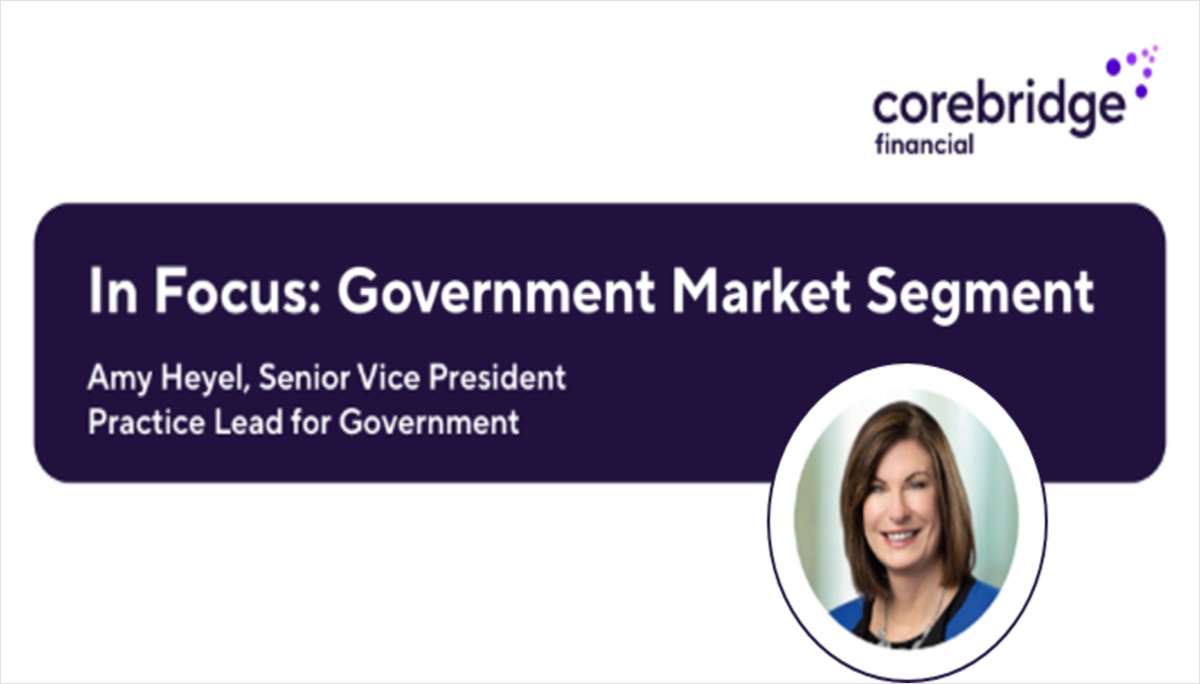 Chief Disciplinary Counsel Brian Staines. Courtesy photo
Chief Disciplinary Counsel Brian Staines. Courtesy photo5 Things Lawyers Should Stop Now: Tips From Connecticut's Chief Disciplinary Counsel
The Connecticut Law Tribune sat down with Brian Staines, the state's chief disciplinary counsel, and asked him five questions pertaining to attorney discipline, and the advice he'd give to lawyers facing grievance complaints or ethics charges.
March 10, 2020 at 05:33 PM
7 minute read
As the lawyer that most attorneys hope to never see across the aisle in a legal dispute, Connecticut's Chief Disciplinary Counsel Brian Staines has a message for those facing grievance complaints: address them head-on, instead of avoiding them.
Staines has served as the state's top prosecutor of attorney-ethics cases since 2018. He said that for many attorneys facing grievances, addressing the situation is easier said than done.
"Do not put it in a drawer, or push it to the corner of your desk hoping it will go away," he said. "It won't."
Staines, 60, is a Wallingford native who spent 27 years in private practice. He sat with the Connecticut Law Tribune for a question-and-answer session about his role prosecuting attorneys who face ethics charges.
Here are his answers, edited for news style, length and clarity.
Connecticut Law Tribune: What's your best advice to attorneys who are facing grievance complaints in Connecticut?
Brian Staines: My first advice is to address the grievance. Do not put it in a drawer or push it to the corner of your desk hoping it will go away. It won't.
When I first started working at the office of chief disciplinary counsel I was absolutely amazed at the number of grievances we receive each month in which the attorney never even answered the grievance. This actually results in additional rule violations. This is particularly hard to understand in light of the fact that, as attorneys, we are paid to address other people's problems.
In most cases the grievance is not the end of the world for the attorney. If the attorney feels overwhelmed, they should contact a colleague for assistance. My second piece of advice would be to consult with an attorney who practices in the area of attorney discipline. The respondent attorney is too close to the matter and may not be able to objectively respond.
Many times with minor violations my office is in a position to assist the respondent attorney in fixing the issue that caused the problem and the grievance is disposed without resulting in discipline.
CLT: You once told the Connecticut Law Tribune the most troubling cases you've seen are those involving Interest on Lawyers Trust Accounts. Tell us why so many attorneys find themselves answering to random audits conducted on behalf of the Statewide Grievance Committee that showed attorneys weren't properly maintaining accounts or adequately protecting client's funds.
Staines: It seems that many large firms that have the resources to utilize accounting programs, or may have business managers or accountants on staff to handle the IOLTA account, have no problem responding to the audits.
It's usually the solo practitioner who is trying to do their job as an attorney performing legal services, and also handle the business aspect of the practice of law with little support, who usually fails when it comes to properly maintaining an IOLTA account.
The requirements for maintaining the IOLTA account records are clearly outlined in the Practice Book, and it's not that difficult to comply, but it takes time.
Failure to maintain proper IOLTA account records is very serious. The IOLTA account has funds that are the property of the client or a third person. We have a very solemn fiduciary obligation to properly maintain and safeguard those funds. Failure to maintain proper records could result in funds being improperly disbursed. I've seen many audits where the IOLTA account was short thousands of dollars through poor record-keeping.
Another serious problem is the attorney's commingling of their funds in the IOLTA account. An attorney is not allowed to leave their attorney fee in the IOLTA account, and pay their personal expenses or take cash advances from the IOLTA account.
CLT: What would you say is the most misunderstood Rule of Professional Conduct in Connecticut?
Staines: One of the most misunderstood Rules of Professional Conduct is probably one of the easiest with which to comply.
Rule 1.5, fees, basically requires two things; the fee agreement be in writing and that the lawyer's fee is not unreasonable. The written fee agreement should identify the scope of the representation and the basis or rate of the fee and expenses for which the client is responsible. Additionally, the fee must be reasonable.
One of the first documents requested of an attorney in the grievance procedure is the fee agreement. Many attorneys are not doing fee agreements or the fee agreement is not clear.
Even if the attorney fee is clearly a flat fee for an identified service, the lawyer should maintain time records in case the client terminates the relationship prior to completion of the service. Then, the lawyer can identify the work completed so that a reasonable fee can be determined.
The attorney has the obligation, upon termination of the matter, to return to the client any unused portion of the attorney fee with an accounting of any deductions from an advanced payment. The Practice Book also requires that, absent a written agreement, any advance payment be held in an IOLTA account until earned.
CLT: A recent Connecticut Law Tribune analysis of five years of attorney discipline in Connecticut found attorneys with solo practices or who worked at smaller law firms were more vulnerable to complaints and discipline then their counterparts in Big Law. Please be specific on why you think that is.
Staines: Attorneys in a large firm may have colleagues with expertise in different areas of the law to which a member may seek advice.
A large firm provides the advantage of having attorneys available to assist in coverage of court matters, research and file maintenance. The law firm also may have financial resources to provide the attorney with up-to-date technology, staff to assist in handling of calls, calendaring and handling the business component of the practice of law so that the attorney is free to concentrate on client maintenance.
On the other hand, the solo practitioner is alone. He or she may take on more cases than they are capable of handling and may be required to be in three places at one time. The client is not receiving the best attention if the attorney is in a rush to attend to other matters.
Attorney-client communication may be limited to "texting" on the phone which places a strain on the relationship. We have had cases where the solo practitioner is literally working out of their car while trying to maintain a viable law practice.
CLT: According to statistics from the state Judicial District, legal malpractice lawsuits filed in civil court here dropped to 48 in 2018-2019, the lowest its been in 20-plus years. There has, for the most part, been a steady decline in legal malpractice suits over the past two decades. What do you attribute that to?
Staines: I think the practice of law has changed over time where attorneys are required to be more specialized in one or two areas of law. Problems occur when attorneys try to have a general practice and take on matters for which they are not competent.
We may also be seeing the positive effects of continuing legal education. Lawyers are becoming more knowledgeable in their practice areas and have resources available to help them to avoid mistakes.
Read more:
This content has been archived. It is available through our partners, LexisNexis® and Bloomberg Law.
To view this content, please continue to their sites.
Not a Lexis Subscriber?
Subscribe Now
Not a Bloomberg Law Subscriber?
Subscribe Now
NOT FOR REPRINT
© 2024 ALM Global, LLC, All Rights Reserved. Request academic re-use from www.copyright.com. All other uses, submit a request to [email protected]. For more information visit Asset & Logo Licensing.
You Might Like
View All

From 'Confusing Labyrinth' to Speeding 'Roller Coaster': Uncertainty Reigns in Title IX as Litigators Await Second Trump Admin
6 minute read
Federal Judge Weighs In on School's Discipline for 'Explicitly Copying AI-Generated Text' on Project

When Police Destroy Property, Is It a 'Taking'? Maybe So, Say Sotomayor, Gorsuch
Trending Stories
- 1Judicial Ethics Opinion 24-68
- 2Friday Newspaper
- 3Judge Denies Sean Combs Third Bail Bid, Citing Community Safety
- 4Republican FTC Commissioner: 'The Time for Rulemaking by the Biden-Harris FTC Is Over'
- 5NY Appellate Panel Cites Student's Disciplinary History While Sending Negligence Claim Against School District to Trial
Who Got The Work
Michael G. Bongiorno, Andrew Scott Dulberg and Elizabeth E. Driscoll from Wilmer Cutler Pickering Hale and Dorr have stepped in to represent Symbotic Inc., an A.I.-enabled technology platform that focuses on increasing supply chain efficiency, and other defendants in a pending shareholder derivative lawsuit. The case, filed Oct. 2 in Massachusetts District Court by the Brown Law Firm on behalf of Stephen Austen, accuses certain officers and directors of misleading investors in regard to Symbotic's potential for margin growth by failing to disclose that the company was not equipped to timely deploy its systems or manage expenses through project delays. The case, assigned to U.S. District Judge Nathaniel M. Gorton, is 1:24-cv-12522, Austen v. Cohen et al.
Who Got The Work
Edmund Polubinski and Marie Killmond of Davis Polk & Wardwell have entered appearances for data platform software development company MongoDB and other defendants in a pending shareholder derivative lawsuit. The action, filed Oct. 7 in New York Southern District Court by the Brown Law Firm, accuses the company's directors and/or officers of falsely expressing confidence in the company’s restructuring of its sales incentive plan and downplaying the severity of decreases in its upfront commitments. The case is 1:24-cv-07594, Roy v. Ittycheria et al.
Who Got The Work
Amy O. Bruchs and Kurt F. Ellison of Michael Best & Friedrich have entered appearances for Epic Systems Corp. in a pending employment discrimination lawsuit. The suit was filed Sept. 7 in Wisconsin Western District Court by Levine Eisberner LLC and Siri & Glimstad on behalf of a project manager who claims that he was wrongfully terminated after applying for a religious exemption to the defendant's COVID-19 vaccine mandate. The case, assigned to U.S. Magistrate Judge Anita Marie Boor, is 3:24-cv-00630, Secker, Nathan v. Epic Systems Corporation.
Who Got The Work
David X. Sullivan, Thomas J. Finn and Gregory A. Hall from McCarter & English have entered appearances for Sunrun Installation Services in a pending civil rights lawsuit. The complaint was filed Sept. 4 in Connecticut District Court by attorney Robert M. Berke on behalf of former employee George Edward Steins, who was arrested and charged with employing an unregistered home improvement salesperson. The complaint alleges that had Sunrun informed the Connecticut Department of Consumer Protection that the plaintiff's employment had ended in 2017 and that he no longer held Sunrun's home improvement contractor license, he would not have been hit with charges, which were dismissed in May 2024. The case, assigned to U.S. District Judge Jeffrey A. Meyer, is 3:24-cv-01423, Steins v. Sunrun, Inc. et al.
Who Got The Work
Greenberg Traurig shareholder Joshua L. Raskin has entered an appearance for boohoo.com UK Ltd. in a pending patent infringement lawsuit. The suit, filed Sept. 3 in Texas Eastern District Court by Rozier Hardt McDonough on behalf of Alto Dynamics, asserts five patents related to an online shopping platform. The case, assigned to U.S. District Judge Rodney Gilstrap, is 2:24-cv-00719, Alto Dynamics, LLC v. boohoo.com UK Limited.
Featured Firms
Law Offices of Gary Martin Hays & Associates, P.C.
(470) 294-1674
Law Offices of Mark E. Salomone
(857) 444-6468
Smith & Hassler
(713) 739-1250










